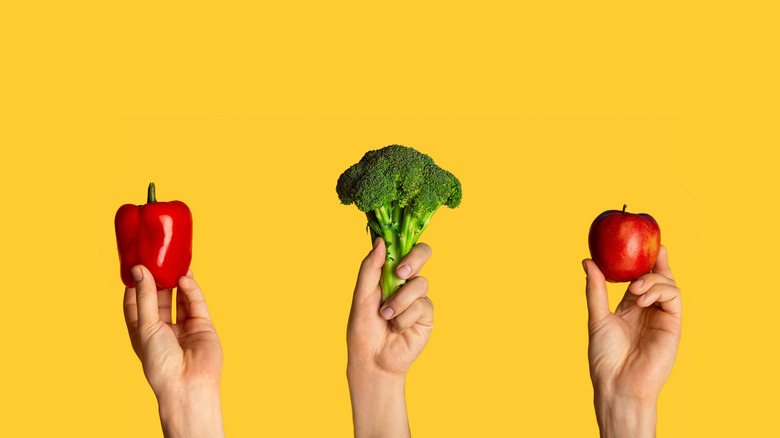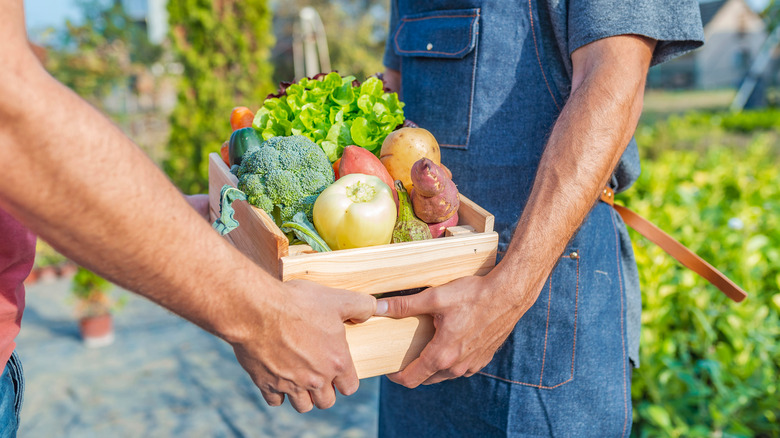The Real Difference Between A Fruit And A Vegetable
A childhood moment more devastating than learning that Santa does not exist is when some classmate comes over with a smug expression to tell you that a tomato is a fruit, not a vegetable. If you can't trust "Veggie Tales," whom can you trust?
Vegetable specialist Dr. Timothy Coolong of the University of Georgia's College of Agricultural and Environmental Sciences cleared it all up. "Scientifically, a vegetable is the edible part of a herbaceous plant, which could be a leaf (lettuce), root (carrot), bulb (onion garlic), and so on," Dr. Coolong tells Mashed. "A fruit is considered a mature ovary of a plant, so anything like a tomato, zucchini, bell pepper, cantaloupe, etc. would be a fruit. From a very strict botanical definition, a vegetable would more or less be edible parts of non-woody plants such as lettuce or celery ... but fruit such as tomatoes are usually treated as vegetables."
The issue is that fruits and vegetables are terms that broadly work but have weirdnesses. With fruits, for example, you eat the part of the plant that contains seeds. This is why tomatoes are fruits as are pumpkins and peppers. Basically eating everything else from the unbloomed flowers of cauliflower, the leaves of kale, to the shoots of asparagus is classified as eating your vegetables.
To add to the confusion, some fruits aren't technically fruits. Because strawberry seeds are contained in the which fleshy bits on the outside, the majority of the berry is not a fruit, scientifically speaking.
What does this mean for the consumer?
These are all the scientific terms for classification, however. As University of Georgia College of Agricultural and Environmental Sciences vegetable specialist Dr. Timothy Coolong explains, fruit and vegetable specialists tend to ignore the botanical class in favor of how the plants actually grow. "We probably treat a lot of things that are botanically fruit as vegetables, because of the growing systems we use. A tomato is most certainly a fruit, but in just about every state the vegetable specialist would be working with tomatoes and not the fruit specialist," Dr. Coolong tells Mashed. It's a similar picture for consumers when it comes to buying fruits and vegetables.
When asked to give the average person a shorthand for dividing their fruits and vegetables, Dr. Coolong suggested in a UGA blog interview, "A vegetable is a food item used to complement other items in a main dish, while a fruit would generally be consumed by itself as a snack or as a dessert."
And as Healthline explains, fruits tend to be higher in sugar and calories than vegetables. However, unlike processed snacks, fruits also have specific nutrients that are beneficial to one's health. Vegetables, however, make a better pairing for a dish because they lack that sweetness but still supply a good amount of minerals, vitamins, and antioxidants. In short, tomatoes can still be treated as a complement food, the way vegetables are; their sweetness doesn't discount their nutrient-dense nature.

